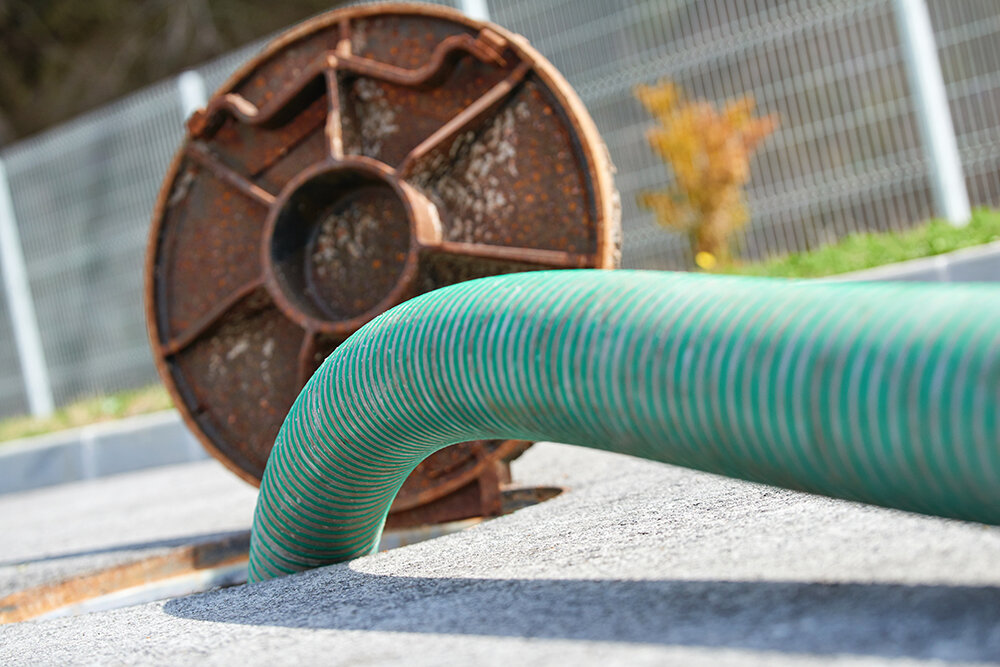Areas we cover
Interceptor FAQ’s
-
An interceptor is designed to capture and separate contaminants from surface water runoff before it enters the drainage system. It works by slowing down the flow of water, allowing heavier solids like silt to settle at the bottom while lighter substances like oil float to the top. Clean water exits through an outlet, while pollutants remain trapped inside.
-
Interceptor cleaning requires the removal of built-up contaminants such as oil, silt, sludge, petrol, and debris. This is done using a high-capacity vacuum tanker, and can include inspecting and jet-washing the chambers to ensure continued performance.
-
The Environment Agency recommends servicing interceptors at least every 6 months. However, if your site is high-risk or handles large volumes of waste you may need to have your interceptor serviced more frequently.
-
Failing to empty an interceptor regularly could lead to a system overflow, blockage, or contaminated liquids entering public drainage networks and nearby waterways. This risks fines, invalidated insurance, and legal action under environmental regulation
-
As long as our team has clear access to the interceptor we can carry out the service without someone present. For first-time visits or sites with restricted access, it may be helpful to have a site contact available to guide us.
-
Yes, we work closely with site managers to arrange interceptor cleaning, emptying, and maintenance services at convenient times. Our team can visit out of hours or during low traffic periods to ensure your operations can still run smoothly.
-
The time it takes to empty and clean an interceptor depends on its size, condition, and the level of waste build-up. We find that most interceptor services take between 1 to 2 hours, however, larger or heavily contaminated systems can take longer.
-
Yes, interceptor waste is classed as hazardous. This is due to the presence of substances like oil, fuel, petrol, chemicals, and silt within the waste. Hazardous waste must be collected, transported, and disposed of by a licensed waste carrier at an authorised treatment facility.
Interceptor cleaning
Interceptor Cleaning, Emptying and Maintenance Guide
What is an interceptor?
Interceptors are drainage systems found at commercial and industrial sites. They prevent oil from polluting the environment or discharging into the sewer.
You can find them in:
Car parks
Car washes
Petrol station forecourts
Construction sites
Factories
Vehicle maintenance areas
Also known as oil separators or forecourt separators, interceptors are little noticed but vital systems. Regular inspections, servicing and cleaning can help you:
Reduce the risk of prosecution and fines for pollution event
Keep your insurance valid
Help protect the local environment
How do interceptors work?
Interceptors are designed to filter contaminants from rainwater runoff, such as:
Dirt
Silt
Petrol
Oil
The Interceptors contain chambers that separate oil from water and sediment. The oil floats to the top and sediment sinks to the bottom. The treated water flows through the chambers and exits through a storm drain or outlet. Vents are attached to these chambers to release any trapped vapour created during the process.
Interceptor inspections:
The Environment Agency (EA) says you must check your interceptor regularly. An inspection carried out every three to six months should include:
Checking the area around to make sure the interceptor is accessible
Check for damaged areas that could cause an issue
Check to make sure manholes can be lifted and area greased where necessary
Check for build-up of silt, oil and any other debris and if necessary clean and empty the interceptor
A visual check of any mechanical parts such as probes, alarms etc.
The integrity of the interceptor tank should be tested every five years.
Interceptor servicing:
We would advise you although to have your interceptor serviced every six months dependent on use of the site the service may need to be carried out more frequently. Servicing should also be carried out if an alarm has been activated, or after an oil spill.
An interceptor service should include:
Checking the filters, repair and/or replace as necessary. Servicing electrical systems (e.g. volume alarms and automatic closure devices). Examine the manholes, pipework, gullies that feed into the interceptor.
Cleaning and emptying your interceptor:
Interceptor cleaning and emptying is required when there is a build-up of oil, sludge or silt in the system. You should arrange an empty if the alarm activates or in the event of a spill. All inerceptor services, cleans and inspections should be logged by the client and any incidents / spills that have occurred need to be noted on your system to be compliant. A lack of interceptor maintenance resulting in a spill or pollution event, damage to the environment could result in prosecution, fines and your insurance company voiding cover.
Petrol interceptors:
Proper and frequent maintenance of petrol (fuel/oil) interceptors is not just a formality, it’s a crucial defence for the environment, your business reputation, regulatory compliance, and financial protection. Keeping to a regular upkeep schedule (ideally every 3–6 months, with extra checks when needed), backed by thorough documentation, ensures these systems continue to function correctly and keep harmful pollutants out of our waterways.
To get assistance with interceptor cleaning and maintenance please contact Environmental Waste Management ltd. on 0800 038 5180.


